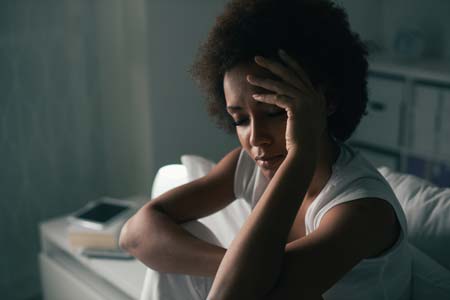We hear the word “depression” a lot these days. But when it comes down to it, if you or a loved one were depressed, would you recognize the symptoms?
Major depression, defined as significantly impacting a person’s life and disrupting daily activities, affects more than 16 million American adults each year. When you consider less severe cases of the condition, even more people are impacted.
Depression is more common among women, affecting twice as more women than men. And people of any age can be affected.
What exactly causes depression?
Many factors can contribute to clinical depression. In some people, there may be multiple contributing factors, while in others, there may be no apparent contributor.
Some contributing factors include:
- a chemical imbalance of neurotransmitters in the brain
- low self-esteem or negative thinking patterns
- female gender, likely due to hormonal changes
- certain illnesses
- certain medications
- genetics
- difficult life events
But back to our original question — if you were affected, would you know? Let’s take a look at the symptoms you should know.
Symptoms of depression
While people who are depressed often feel hopeless, the condition is manageable with treatment. That’s why it’s important to recognize the symptoms in yourself or others — and seek help when needed.
People with depression may experience:
- A loss of energy during routine activities
- Withdrawal from, or a lack of interest in, activities that were previously enjoyable
- Feelings of emptiness, worthlessness or failure
- Extreme mood swings, including weepiness
- Frequent irritability
- Binge eating or eating too much or not having an appetite
- Disrupted sleep patterns
- Lack of concentration or difficulty thinking
If you’re experiencing any of these symptoms, talk with your doctor. When left untreated, depression can become more severe or linger for months or even years.
Treatment options for depression
For those with the condition, there are multiple treatment options that may help. But the first — and most important — step is seeking help in the first place.
Treatment of depression is highly effective, but according to the National Center for Health Statistics, only around one-third of those affected by the condition seek treatment.
When you seek medical attention for depression symptoms, your doctor will work with you to determine the underlying cause. Your appointment may include a physical exam, lab work and a mental health evaluation.
There are many different types of depression and the type of treatment your doctor suggests will depend on the type you have and your symptoms, among other things.
Treatment may include psychotherapy, which is often referred to as “talk therapy.” This type of therapy allows those with the condition to talk through what they’re experiencing and other issues occurring in their lives.
Psychotherapy may be prescribed on its own or in conjunction with medication. Doctors can select from a variety of antidepressants — and finding the right one may require trying a few.
If you’re prescribed an antidepressant, it’s important to take it as prescribed and not to stop the medication without discussing it with your doctor. In many cases, you should wean off these medications rather than stopping abruptly.
Depression vs. anxiety: What’s the difference?
The two terms are often used together, and in fact, the two conditions are often experienced together. One study found that as many as 85 percent of those who had major depression also experienced anxiety.
But while many people do experience both conditions, the symptoms associated with anxiety are different than those of depression.
Someone experiencing an anxiety disorder may have:
- persistent worry and fear
- obsessive thoughts
- panic
- difficulty sleeping
- a racing heartbeat
- cold or sweaty hands
- shortness of breath
Determining which condition you have is an important first step in ensuring your symptoms are treated appropriately. Take note of your specific symptoms and talk with your doctor about what you’re experiencing, when you’re experiencing it, and how often you’re experiencing it. All of that information can help him or her make an educated diagnosis.
Believe you may be experiencing depression or anxiety? Talking with your doctor is the first step toward diagnosis and treatment; telemedicine options are available. Don’t have a doctor? Find a doctor here.







